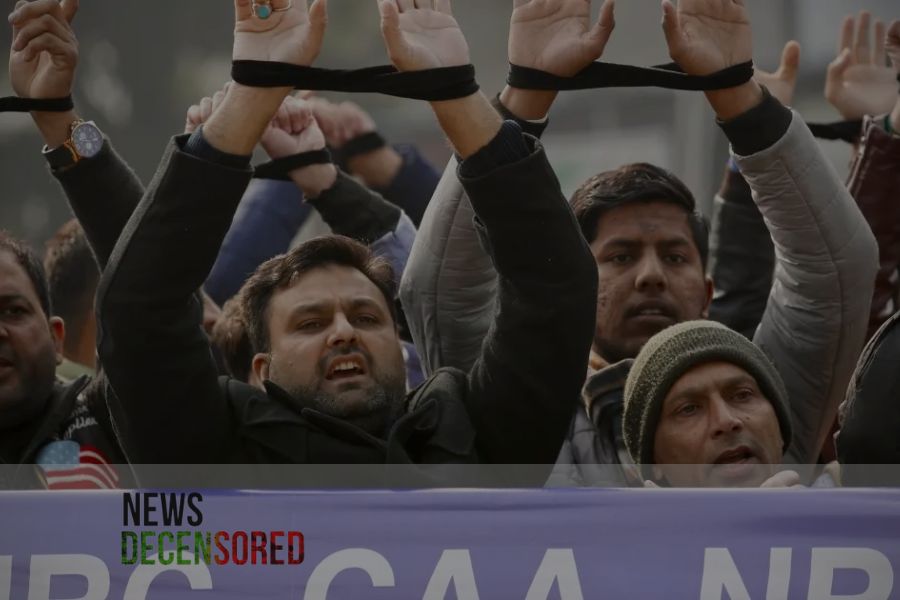The recent announcement of rules operationalizing the Citizenship Amendment Act (CAA) in India has reignited controversy surrounding the legislation. Passed in 2019, the CAA has been criticized for its discriminatory nature, specifically towards Muslims.
A Flawed Foundation
Critics argue the CAA violates India’s core principle of secularism enshrined in its constitution. The Act expedites citizenship for Hindus, Sikhs, Christians, Jains, Buddhists, and Parsis who migrated illegally from Pakistan, Bangladesh, and Afghanistan before December 2014, on grounds of religious persecution. However, Muslims are conspicuously absent from this list. This exclusion has sparked outrage and accusations of religious bias against the Bharatiya Janata Party (BJP) government led by Prime Minister Narendra Modi.
Dog-Whistle Politics
Many see the CAA as a political ploy by the BJP to appease its Hindu nationalist base. The exclusion of Muslims reinforces the notion that they are not truly Indian and reinforces the idea that Muslims are inherently dangerous in a Hindu-majority nation. This tactic of subtly stirring religious tensions for political gain is often referred to as “dog-whistling.”
The government justifies the CAA by claiming it offers refuge to those fleeing religious persecution. However, critics point out that Muslim communities like Ahmadis and Hazaras who face documented religious persecution in their homelands are denied this pathway to citizenship. Additionally, the Act only applies to migrants from three specific countries, ignoring those facing persecution in Sri Lanka, Myanmar, and Bhutan. This inconsistency raises questions about the government’s true motives.
The government claims the CAA aims to improve the image of Islam, supposedly tarnished by acts of persecution in these countries. Critics see this as disingenuous. The very existence of the CAA implies that Muslim-majority countries inherently persecute minorities, further fueling prejudice.
Unfinished Business or Unequal Rights?
The BJP claims the CAA completed the unfinished business of partition in 1947, implying a complete exchange of populations. However, this narrative ignores the reality of millions of Muslims who remained in India after the partition. The CAA, rather than fostering unity, creates a system of tiered citizenship with Hindus having more rights than Muslims.
A Piece of a Larger Puzzle
The CAA is seen as part of a broader agenda by the BJP to marginalize Muslims. This agenda includes laws restricting religious freedoms, banning cow slaughter (considered sacred by Hindus), and outlawing a specific form of Islamic divorce considered discriminatory towards women.
The NRC: A Looming Threat?
The Home Minister has linked the CAA to the National Register of Citizens (NRC), a process designed to identify and remove “illegal immigrants.” Critics fear this could disproportionately target Muslims, who may lack proper documentation. The potential combination of the CAA and NRC raises serious concerns about the future of Indian Muslims.
The CAA, despite its stated goal of aiding persecuted minorities, has become a divisive force in India. It undermines the nation’s secular foundation and creates a two-tiered system of citizenship. While the government claims the NRC is not a national threat, its potential implementation, coupled with the discriminatory nature of the CAA, casts a long shadow over the future of religious harmony in India.















